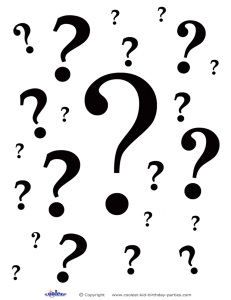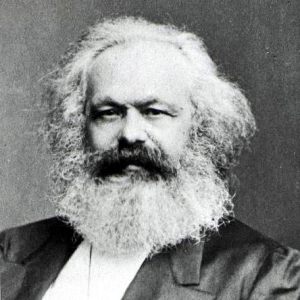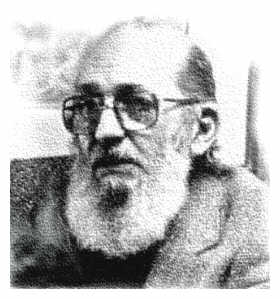A major question in rhetoric and composition (hereafter rhet/comp) studies today concerns the social turn in rhet/comp methodologies and its effectiveness as a pedagogy. The convening of the annual College Composition and Communication (CCCC) conference in 1964 raised the question of the place rhetoric held in composition instruction, pointing out that “the use of topics (“places” for discovering arguments) and status (finding the type of issue to dispute) helped students raise and investigate compelling questions” and that using rhetorical concepts such as Cicero’s Five Canons, the rhetorical situation, and kairos “encouraged the construction of a full composition curriculum with different aims of writing (Lauer 108). Over the next three decades, the “social turn” in rhet/comp recovered work in the rhetorical writings of women and minorities, previously overlooked or marginalized in rhetorical studies. Lauer describes this as a “rhizomatic spread of theory, research, and new pedagogy” which focused on sociocultural contexts in which students learned the strategies and rhetorical emphases of particular discourse communities, typically investigating their own (121). Scholars such as Lauer, Flower, Friere, Bizzell, LeFevre, hooks, and others argued for the contextual cultural, social, and political concerns of students as entry points for developing effective, empowering, and meaningful rhetorical discourse in rhetoric and composition studies.
If public discourse and civic responsibility were a major concern of colleges and universities in the late 18th and 19th centuries, as S. Michael Halloran argues, why did instruction in classical rhetorical traditions lose its importance? Halloran argues that the emergence of belles lettres as a component of rhetorical studies “distracted the gaze of rhetoricians from their central concern with public discourse,” reframing rhetoric as the art of orating the more aesthetic, or beautiful, elements of speech rather than those that addressed a civic issue (104). As well, the adoption of current-traditional models of rhetoric focused on “products rather than processes” which Halloran argues may be why the creative art of invention with emphasis on substance and content died out in favor of an emphasis on the four modes of the current-traditional model: description, narration, exposition, and argumentation (103). Sharon Crowley also observes that the rise of the current-traditional model led to more formulaic writing processes that emphasized invention and style, and she notes that this formula survived in collegiate texts up through the late eighties and can still be seen today in some writing courses (233). The historical question of why and how emphasis on the social and contextual nature of rhet/comp instruction rose and fell and rose again, has led to increased interest in the theoretical movements of rhet/comp methodologies over time, and whether the social turn has benefited the development of student writing.
Jeffrey Zorn openly condemns the practice of privileging student voice and socio-cultural contexts as “garbage,” claiming that is there is no evidence that these methods work to improve student writing (273). Although he doesn’t prove his case either[1] Zorn does seem to be leading the pack on critiquing social-construction as ineffective, or at least, not evidenced as more effective teaching pedagogy in rhet/comp courses. If improved student writing is the desired goal of a first-year composition course, and rhetorical tradition based on classical theories of invention, arrangement, style, delivery, and memory is a primary approach to teaching writing, then what part do student social and cultural contexts play in achieving those goals? Zorn’s argument is that we have gone too far in encouraging social/cultural studies in the writing classroom, at the expense of more tangible skills like “logic, organization, clarity, third-person exposition, Aristotelian rhetoric, Standard English, literacy itself, education itself, and writing instruction that aspires only to improved writing” (278). This sally invites the question of how rhet/comp instruction is transferred to other courses and the “real world,” as Writing Across the Curriculum (WAC) becomes a looming question in rhet/comp studies today. Does raising social consciousness and civic responsibility in first-year writing courses really bear out later in the students’ professional, academic, and social lives?
Paul J. Johnson and Ethan Krase argue that, in their limited study of twelve first-year writing students, a focus on skills – “articulating and supporting claims” and properly supporting their arguments by using documented evidence – seems to be the most transferable to later courses (47). They do not analyze how topics and assignments are constructed in these student’s classes, and so maintain only that specific and direct instruction on articulating claims and providing valid evidence and support is a measurable skill that was transferred from first-year writing courses into later upper-level courses across a variety of genres. This moves us into questioning the relationship between Writing Across the Curriculum (WAC) and the transfer of writing ability to other courses. WAC questions seem to be appropriately placed in English Studies, since new fields in linguistics, literacy, technical communication, and other domains have integrated new genres that English Studies, and the rhet/comp field in particular, are most readily able to accommodate. In first-year writing, there is a lot of room for instructors to sample many different writing genres with their students, and as Lauer notes, rhetoric and composition scholars in the 1980’s began to argue that “teaching a rhetoric of inquiry in the disciplines helps writers ‘learn how knowledge has been constructed as well as what that knowledge is'” (123). WAC is also connected to how students transfer writing skills outside the classroom (“extracurriculum,” as termed by Anne Ruggles Gere)[2], and most particularly outside academia and in the community. Ellen Cushman notes in her article, “The Rhetorician as an Agent of Social Change,” that we must encourage students to be active outside of the classroom, especially in their communities, and her own work as a doctoral student involved helping community members write resumes, fill out housing and college applications, and compose business letters (7, 13). Thus, students social contexts and using a social-constructionist pedagogy remains a major question in rhetoric and composition studies, but one I suggest is relevant to developing research in WAC and the transfer of writing skills as applied learning in the “real world.”
**************************
Works Cited
Crowley, Sharon. “The Current-Traditional Theory of Style: An Informal History.” Rhetoric Society Quarterly 16:4 (Autumn, 1986): 233-250.
Cushman, Ellen. “The Rhetorician as an Agent of Social Change,” College Composition and Communication 47:1 (Feb. 1996): 7-28. Print.
Halloran, S. Micheal. “Rhetoric in the American College Curriculum: The Decline of Public Discourse.” PRE/TEXT, 3:3 (1982): 93-115. Print.
Johnson, J. Paul and Ethan Krase. “Articulating Claims and Presenting Evidence: A Study of Twelve Student Writers, From First-Year Composition to Writing Across the Curriculum.” The WAC Journal 23 (2012): 31048. Print.
Lauer, Janice. “Rhetoric and Composition.” English Studies: An Introduction to the Discipline(s). Ed. Bruce McComisky. Urbana: National Council of Teachers of English, 2006. 106-152. Print.
Zorn, Jeffrey. “English Compositionism as Fraud and Failure.” Academic Questions 26:3 (2013): 270-284. Print.
**********************
[1] Zorn argues that three things must happen in order to teach “remedial, core, advanced, or discipline-specific writing classes”: 1) dissociate composition teaching from literature teaching; 2) dissociate composition teaching from composition studies and composition theory; and 3) put writing instruction in the hands of practitioners – of whatever academic training and political leaning – whose only job is to guide student writers towards proficiency at the level traditionally associated with “higher” education.” (283, 272). Zorn offers no evidence that more traditional teaching practices had a greater learning outcome effect on student writing, and it begs the question that, if traditional forms were so wonderful, why they’ve been sidelined in favor of social-constructionalist approaches. Halloran does discuss this shift in his article, “Rhetoric in the American College Curriculum: The Decline of Public Discourse” (1982), but that only concerns the teaching of rhetoric for “effective communication on public problems, problems that arise in our life in political communities” (94). Johnson and Krase argue that focusing on specific writing skills does seem to produce more measurable transfer in student writing, but their sample is limited to twelve students.
[2] Gere, Anne Ruggles. “Kitchen Tables and Rented Rooms: The Extracurriculum of Composition.” College Composition and Communication 45.1 (1994): 75-92. Print.





This was excellent information! I had read some of the scholars you mentioned, but had not read Zorn – so now a definite addition to my reading list. As I started reading, I thought — how could you disagree with the need to broaden awareness and teach from the full canon, including invention, using a more diverse social consciousness. About the time you mention Zorn, I’m thinking no way, I can’t believe this — then you add in Johnson and Krase and I’m thoroughly conflicted. What a wonderful conflux of views and ideas!
I do try to draw from a broad array of authors, as well as the full rhetorical canon when I teach writing — thinking both about how students need to learn to write better, but also how social awareness and awakening consciousness to issues outside of themselves adds to their breadth of knowledge for topics to write about. With WAC and also the efforts on campuses for global awareness in classes, as well as civic/service learning built in to classes, I think it’s hard to argue that a social awareness with a writing curriculum isn’t benefiting students — whether directly or indirectly in their writing.
I couldn’t agree with you more Julie, in your last sentence: “Thus, students social contexts and using a social-constructionist pedagogy remains a major question in rhetoric and composition studies, but one I suggest is relevant to developing research in WAC and the transfer of writing skills as applied learning in the ‘real world.’” Your focus on the question of social constructivism and the effectiveness of students using their own experience to make meaning and become better writers was incredibly interesting, especially in light of our class discussion last week on technical writing and briefly WID/WAC. My question for scholars like Zorn is why can’t we have both? Why can’t students’ social, familial, cultural, and life experiences play into their development of effective writing and/or classical rhetorical techniques, such as invention, arrangement, style, delivery, and memory? As you write, Zorn and others who critique social constructivism or civic engagement in a first year writing course do loudly question ‘‘Does raising social consciousness and civic responsibility in first-year writing courses really bear out later in the students’ professional, academic, and social lives?,” and I personally (as a first year writing teacher) often want to answer why wouldn’t we want to raise social consciousness and civic responsibility? For me, I feel that those two areas of life are perhaps the greatest things we should emphasize in any student’s professional, academic, and social lives. However, I do have to admit that I also understand Zorn’s critique, as there seems to be a disconnect between common writing assignments in a first-year writing course at my school (like a “literacy narrative” or “discourse community analysis”) and the technical writing most will end up doing….I still want to side, at the end of the day, with scholars like Cushman though.